Shelled walnuts have long been considered a powerhouse of nutrition and health benefits. With their unique taste and versatility, walnuts have become a popular snack and ingredient in a variety of dishes. This article aims to provide an in-depth summary of the nutritional composition of shelled walnuts, exploring their numerous health benefits and the role they can play in maintaining a balanced diet. 1. Macronutrients: Shelled walnuts are a rich source of macronutrients that are essential for a healthy diet. They provide a good balance of proteins, carbohydrates, and fats, making them a satisfying and nutrient-dense food choice. Approximately 65% of the total fat content in walnuts is polyunsaturated fatty acids, primarily omega-3 and omega-6, which are known for their heart-healthy properties. 2. Micronutrients: In addition to macronutrients, shelled walnuts are packed with essential micronutrients that promote overall well-being. They are an excellent source of vitamin E, which is a potent antioxidant that protects the body against oxidative stress. Walnuts also provide a range of B-complex vitamins, including thiamin, riboflavin, niacin, and folate, which are essential for energy metabolism and maintaining proper brain function. 3. Minerals: Shelled walnuts are a notable source of several essential minerals. They are particularly rich in magnesium, which plays a vital role in numerous bodily functions, including nerve function, muscle contraction, and bone health. Walnuts also provide a significant amount of copper, manganese, and phosphorus, which contribute to various physiological processes like energy production and tissue development. 4. Fiber Content: One of the outstanding features of shelled walnuts is their high fiber content. Dietary fiber is crucial for maintaining a healthy digestive system and optimal bowel function. It aids in preventing constipation, regulating blood sugar levels, and lowering cholesterol. Just one ounce of shelled walnuts can contribute approximately 2 grams of dietary fiber to one’s daily intake. 5. Antioxidants: Shelled walnuts are abundant in antioxidants compared to many other commonly consumed nuts. Antioxidants help combat oxidative stress and reduce inflammation, which are often linked to chronic diseases like heart disease, diabetes, and certain cancers. The polyphenols and phytochemicals contained in walnuts, such as ellagic acid and flavonoids, contribute to their high antioxidant activity. 6. Heart Health Benefits: Numerous studies have suggested that regular consumption of shelled walnuts can promote heart health.
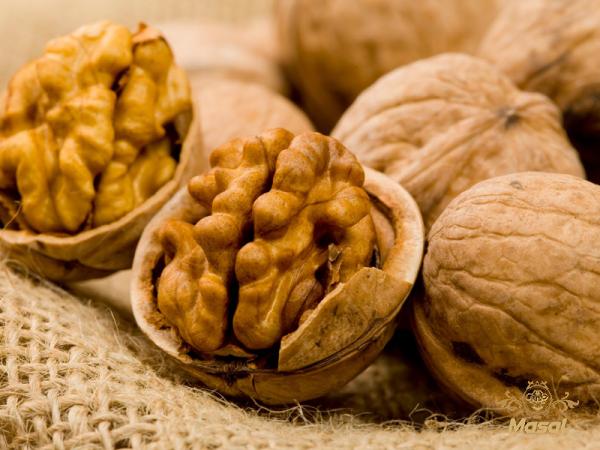
nut
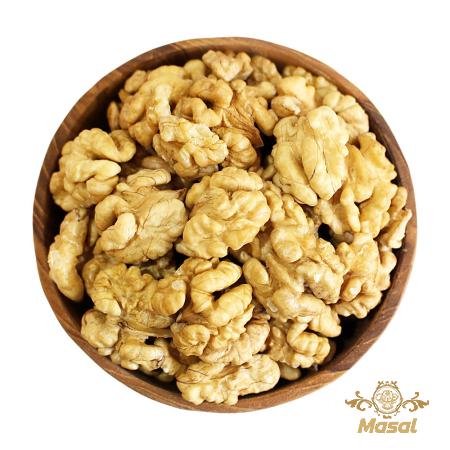 The polyunsaturated fats found in walnuts, particularly alpha-linolenic acid (ALA), have been associated with a reduced risk of developing cardiovascular diseases. Additionally, the antioxidants and anti-inflammatory properties of walnuts help improve overall heart function and decrease harmful LDL cholesterol levels. 7. Brain Health Benefits: Shelled walnuts are often referred to as “brain food” due to their potential cognitive benefits. Research suggests that the high levels of antioxidants and omega-3 fatty acids found in walnuts may help improve memory, learning, and overall brain health. Regular consumption of walnuts has been associated with a reduced risk of age-related cognitive decline and neurodegenerative disorders, such as Alzheimer’s disease. 8. Weight Management: Contrary to popular belief, shelled walnuts can be beneficial for weight management when consumed in moderation. Despite being relatively high in calories, the combination of healthy fats, protein, and fiber in walnuts helps promote satiety and may reduce overall calorie intake. Including walnuts in a well-balanced diet can contribute to maintaining a healthy weight and provide a feeling of fullness. 9. Other Potential Health Benefits: In addition to the aforementioned benefits, shelled walnuts may also have other potential health advantages. Some studies suggest that regular walnut consumption may help improve sperm quality in men, reduce the risk of certain cancers (such as prostate and breast cancer), and enhance bone health due to their high mineral content. Conclusion: Shelled walnuts are undisputedly a nutritional powerhouse, packed with an array of vital macronutrients, micronutrients, fiber, antioxidants, and other bioactive compounds. Incorporating shelled walnuts into a balanced diet can offer numerous health benefits, including improved heart and brain health, better weight management, and reduced risk of chronic diseases. Whether enjoyed as a snack or incorporated into various culinary creations, shelled walnuts are a delicious and nutritious addition to any diet. Shelled Walnuts in the Culinary Industry: 1. In the Bakery and Confectionery Industry: Shelled walnuts are widely used in the bakery and confectionery industry for their distinctive nutty flavor and texture. They are commonly incorporated into a range of baked goods, including bread, cakes, cookies, and pastries. Walnuts can be chopped or ground to be used as a topping or filling, adding a delightful crunch and richness to these creations. From classic walnut brownies to traditional baklava, the versatility of shelled walnuts makes them a popular choice among bakers and confectioners. 2. In the Snack Food Industry: Shelled walnuts also find their place in the snack food industry, as they are a nutritious and convenient snack option. They are widely available in various forms, such as roasted, salted, or flavored walnuts, making them an appealing choice for consumers looking for a quick and healthy snack. Shelled walnuts can also be part of mixed nut assortments, trail mixes, and granola bars, offering a delicious blend of flavors and textures.
The polyunsaturated fats found in walnuts, particularly alpha-linolenic acid (ALA), have been associated with a reduced risk of developing cardiovascular diseases. Additionally, the antioxidants and anti-inflammatory properties of walnuts help improve overall heart function and decrease harmful LDL cholesterol levels. 7. Brain Health Benefits: Shelled walnuts are often referred to as “brain food” due to their potential cognitive benefits. Research suggests that the high levels of antioxidants and omega-3 fatty acids found in walnuts may help improve memory, learning, and overall brain health. Regular consumption of walnuts has been associated with a reduced risk of age-related cognitive decline and neurodegenerative disorders, such as Alzheimer’s disease. 8. Weight Management: Contrary to popular belief, shelled walnuts can be beneficial for weight management when consumed in moderation. Despite being relatively high in calories, the combination of healthy fats, protein, and fiber in walnuts helps promote satiety and may reduce overall calorie intake. Including walnuts in a well-balanced diet can contribute to maintaining a healthy weight and provide a feeling of fullness. 9. Other Potential Health Benefits: In addition to the aforementioned benefits, shelled walnuts may also have other potential health advantages. Some studies suggest that regular walnut consumption may help improve sperm quality in men, reduce the risk of certain cancers (such as prostate and breast cancer), and enhance bone health due to their high mineral content. Conclusion: Shelled walnuts are undisputedly a nutritional powerhouse, packed with an array of vital macronutrients, micronutrients, fiber, antioxidants, and other bioactive compounds. Incorporating shelled walnuts into a balanced diet can offer numerous health benefits, including improved heart and brain health, better weight management, and reduced risk of chronic diseases. Whether enjoyed as a snack or incorporated into various culinary creations, shelled walnuts are a delicious and nutritious addition to any diet. Shelled Walnuts in the Culinary Industry: 1. In the Bakery and Confectionery Industry: Shelled walnuts are widely used in the bakery and confectionery industry for their distinctive nutty flavor and texture. They are commonly incorporated into a range of baked goods, including bread, cakes, cookies, and pastries. Walnuts can be chopped or ground to be used as a topping or filling, adding a delightful crunch and richness to these creations. From classic walnut brownies to traditional baklava, the versatility of shelled walnuts makes them a popular choice among bakers and confectioners. 2. In the Snack Food Industry: Shelled walnuts also find their place in the snack food industry, as they are a nutritious and convenient snack option. They are widely available in various forms, such as roasted, salted, or flavored walnuts, making them an appealing choice for consumers looking for a quick and healthy snack. Shelled walnuts can also be part of mixed nut assortments, trail mixes, and granola bars, offering a delicious blend of flavors and textures.
Specifications of nut
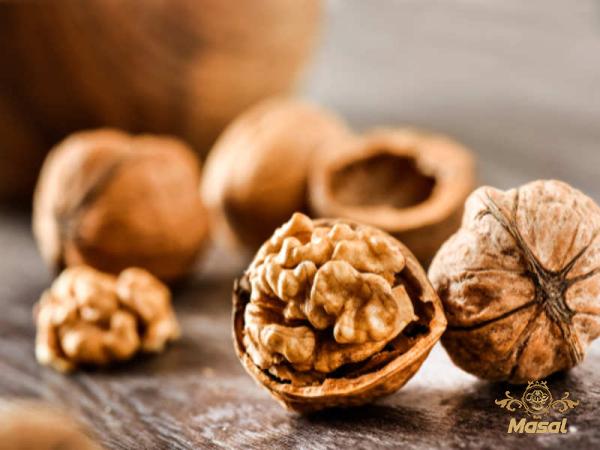 3. In the Health Food Industry: Shelled walnuts are a staple in the health food industry, as they are considered a superfood that boasts numerous health benefits. Many health food stores stock a variety of walnuts, including organic, raw, and sprouted options, appealing to health-conscious consumers. These walnuts can be consumed as a standalone snack or used as an ingredient in healthy recipes such as energy balls, homemade granola, or nut butter. 4. In the Dairy Industry: Shelled walnuts can also be found in the dairy industry, particularly in the production of nut-based milk alternatives. Walnut milk offers a creamy and slightly sweet flavor, making it a popular choice for those seeking dairy-free alternatives or looking to incorporate the health benefits of walnuts into their diet. Walnut milk can be used in various recipes, including smoothies, desserts, and hot beverages. 5. In the Culinary Arts: Chefs and culinary professionals often utilize shelled walnuts in a wide array of savory dishes to impart flavor, texture, and visual appeal. They can be used to enhance salads, stir-fries, pasta dishes, and roasted vegetable medleys. The natural oils in walnuts can serve as a base for making flavorful dressings, marinades, and sauces. Additionally, walnuts can be ground and used as a replacement for traditional breading in vegetarian or vegan dishes, providing a satisfying crunch and added nutritional value. 6. In Nutritional Supplements: The nutritional value of shelled walnuts has led to their incorporation into various nutritional supplements. Walnuts are available in supplement form, such as encapsulated walnut oil or powdered walnuts, offering a convenient way to obtain the health benefits of walnuts without consuming them directly. These supplements may be marketed towards individuals seeking to improve their heart health, brain function, or overall well-being. 7. In the Cosmetic and Personal Care Industry: Due to their high antioxidant content, shelled walnuts have also found their way into the cosmetic and personal care industry. Walnuts are used in skincare products, such as facial scrubs and exfoliants, to gently slough away dead skin cells and promote a glowing complexion. Walnut oil is also incorporated into hair care products, as it is believed to help strengthen hair follicles, reduce hair loss, and improve overall hair health. 8. In the Manufacturing Industry: Shelled walnuts have various uses in the manufacturing industry. Walnut shells, the hard outer casings of walnuts, are crushed and used as an abrasive material. They find applications in cleaning products, polishing agents, and as an additive in certain manufacturing processes. Walnut shells are also used in pet bedding and as an ingredient in pet litter, providing a natural and biodegradable alternative.
3. In the Health Food Industry: Shelled walnuts are a staple in the health food industry, as they are considered a superfood that boasts numerous health benefits. Many health food stores stock a variety of walnuts, including organic, raw, and sprouted options, appealing to health-conscious consumers. These walnuts can be consumed as a standalone snack or used as an ingredient in healthy recipes such as energy balls, homemade granola, or nut butter. 4. In the Dairy Industry: Shelled walnuts can also be found in the dairy industry, particularly in the production of nut-based milk alternatives. Walnut milk offers a creamy and slightly sweet flavor, making it a popular choice for those seeking dairy-free alternatives or looking to incorporate the health benefits of walnuts into their diet. Walnut milk can be used in various recipes, including smoothies, desserts, and hot beverages. 5. In the Culinary Arts: Chefs and culinary professionals often utilize shelled walnuts in a wide array of savory dishes to impart flavor, texture, and visual appeal. They can be used to enhance salads, stir-fries, pasta dishes, and roasted vegetable medleys. The natural oils in walnuts can serve as a base for making flavorful dressings, marinades, and sauces. Additionally, walnuts can be ground and used as a replacement for traditional breading in vegetarian or vegan dishes, providing a satisfying crunch and added nutritional value. 6. In Nutritional Supplements: The nutritional value of shelled walnuts has led to their incorporation into various nutritional supplements. Walnuts are available in supplement form, such as encapsulated walnut oil or powdered walnuts, offering a convenient way to obtain the health benefits of walnuts without consuming them directly. These supplements may be marketed towards individuals seeking to improve their heart health, brain function, or overall well-being. 7. In the Cosmetic and Personal Care Industry: Due to their high antioxidant content, shelled walnuts have also found their way into the cosmetic and personal care industry. Walnuts are used in skincare products, such as facial scrubs and exfoliants, to gently slough away dead skin cells and promote a glowing complexion. Walnut oil is also incorporated into hair care products, as it is believed to help strengthen hair follicles, reduce hair loss, and improve overall hair health. 8. In the Manufacturing Industry: Shelled walnuts have various uses in the manufacturing industry. Walnut shells, the hard outer casings of walnuts, are crushed and used as an abrasive material. They find applications in cleaning products, polishing agents, and as an additive in certain manufacturing processes. Walnut shells are also used in pet bedding and as an ingredient in pet litter, providing a natural and biodegradable alternative.
buy nut
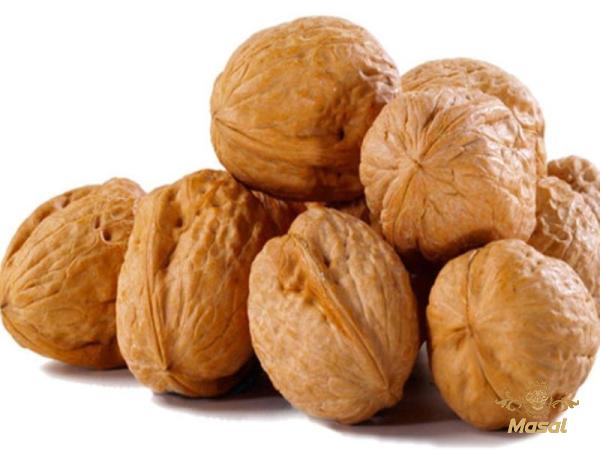 9. In the Agricultural and Horticultural Industry: The shells of shelled walnuts have beneficial applications in the agricultural and horticultural industry. Walnut shells are commonly used as a mulching material in gardens and farms. They act as a natural weed suppressant and moisture retainer, helping conserve water and improve soil structure. Walnut shells can also be used as a natural dye or ground into fine particles to create a non-toxic abrasive for cleaning and sanding purposes. 10. In the Export and Import Industry: Shelled walnuts are a globally traded commodity, contributing to the export and import industry. Countries with significant walnut production, such as the United States, China, Iran, and Turkey, export shelled walnuts to meet the demand of international markets. These walnuts are packaged and shipped in various forms, including whole, halves, or chopped, to cater to different market preferences. The import and distribution of shelled walnuts create economic opportunities and ensure the availability of this nutritious nut worldwide. 11. Market Trends and Opportunities: The demand for shelled walnuts continues to grow, driven by increasing awareness of their health benefits and their growing popularity in various culinary applications. As consumers become more health-conscious, the demand for natural, nutrient-dense foods like shelled walnuts is expected to rise. This trend opens up opportunities for farmers, processors, and retailers to meet the demands of the market and explore innovative product offerings. 12. Potential Challenges and Future Prospects: The cultivation of shelled walnuts can face challenges, such as fluctuations in weather patterns, pests, and diseases. However, advancements in farming practices, breeding techniques, and pest management strategies provide hope for maintaining consistent walnut production. Additionally, as research continues to uncover the numerous health benefits of shelled walnuts, the industry is poised for growth and diversification, offering potential avenues for product development, marketing, and expansion into new markets. Conclusion: From the culinary industry to agriculture, shelled walnuts have a significant presence and offer various business opportunities. Their unique nutritional composition, versatility in culinary applications, and growing demand reflect the immense potential this humble nut holds. As the world becomes more health-conscious and the demand for natural, nutrient-rich foods continues to rise, shelled walnuts are poised to play a pivotal role in the business landscape, creating avenues for growth, innovation, and economic opportunities.
9. In the Agricultural and Horticultural Industry: The shells of shelled walnuts have beneficial applications in the agricultural and horticultural industry. Walnut shells are commonly used as a mulching material in gardens and farms. They act as a natural weed suppressant and moisture retainer, helping conserve water and improve soil structure. Walnut shells can also be used as a natural dye or ground into fine particles to create a non-toxic abrasive for cleaning and sanding purposes. 10. In the Export and Import Industry: Shelled walnuts are a globally traded commodity, contributing to the export and import industry. Countries with significant walnut production, such as the United States, China, Iran, and Turkey, export shelled walnuts to meet the demand of international markets. These walnuts are packaged and shipped in various forms, including whole, halves, or chopped, to cater to different market preferences. The import and distribution of shelled walnuts create economic opportunities and ensure the availability of this nutritious nut worldwide. 11. Market Trends and Opportunities: The demand for shelled walnuts continues to grow, driven by increasing awareness of their health benefits and their growing popularity in various culinary applications. As consumers become more health-conscious, the demand for natural, nutrient-dense foods like shelled walnuts is expected to rise. This trend opens up opportunities for farmers, processors, and retailers to meet the demands of the market and explore innovative product offerings. 12. Potential Challenges and Future Prospects: The cultivation of shelled walnuts can face challenges, such as fluctuations in weather patterns, pests, and diseases. However, advancements in farming practices, breeding techniques, and pest management strategies provide hope for maintaining consistent walnut production. Additionally, as research continues to uncover the numerous health benefits of shelled walnuts, the industry is poised for growth and diversification, offering potential avenues for product development, marketing, and expansion into new markets. Conclusion: From the culinary industry to agriculture, shelled walnuts have a significant presence and offer various business opportunities. Their unique nutritional composition, versatility in culinary applications, and growing demand reflect the immense potential this humble nut holds. As the world becomes more health-conscious and the demand for natural, nutrient-rich foods continues to rise, shelled walnuts are poised to play a pivotal role in the business landscape, creating avenues for growth, innovation, and economic opportunities.





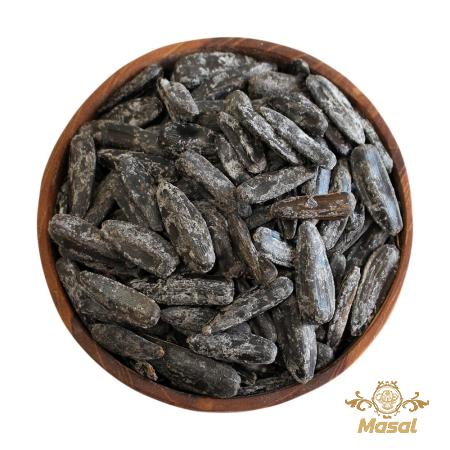

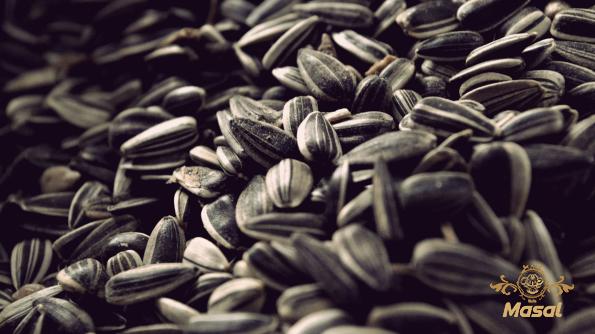


Your comment submitted.